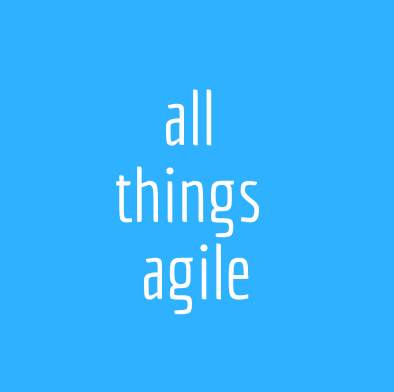
I will start this post a tad bit provocative and ask you: do you want to be an extraordinary agile coach?
Whether you already are an agile coach or an aspiring one, or maybe a scrum master, I invite you to think that you can choose to be extraordinary, no less. And to help paint the picture, I’m going to share with you 5 personal values that extraordinary agile coaches uphold.
I’m going to show you why they are important and how they positively affect your practice by positive changing the lives of your clients.
The first think I’d love for you to do is to stop and think about the word extraordinary.
Unusual. Remarkable. Out of the ordinary.
So, as an extraordinary agile coach you are not the average coach out there.
As an extraordinary agile coach you help individuals, teams, and through them whole departments and organizations to be more effective in creating (not just delivering) value, in doing effective delivery, and in being more collaborative among themselves and with their customers.
Extraordinary agile coaches are incredible at understanding the nature of change in human systems. And it goes without saying, great agile practitioners.
So let’s journey through the 5 personal values that extraordinary agile coaches uphold, to gain better insights on how they do their magic.
Courage
An extraordinary agile coach is brave, courageous. That means they say what nobody else is willing to say. When you notice what does not work and you make that visible, people will respond. That is the whole point! You want people to respond, so that whatever was flying under the radar is now addressed. That could be:
- A problem in team capacity.
- Lack of quality.
- Bias.
- Unclear direction.
- Something unfair breeding.
And more.
And sometimes people will respond with not much kindness no matter how kind you were in bringing that issue up. And that’s OK. That is not on you how people respond. Extraordinary agile coaches know that “the elephant in the room” or the “status quo” and several other things follow the rule of inertia: nothing will change unless an intervention is done.
And interventions are needed. That’s why the team or the company asked for an agile coach in the first place! So don’t be afraid or shy about bringing to light the unspoken. It is a matter of duty.
And here is another place where courage is needed for an agile coach: to point out what works!
Yes, it is not all doom and gloom like you may have seen with other agile coaches, so ready to complain about what does not work in the client space. Well, they would not be hired if things were all already just awesome, right?
But even more so, extraordinary agile coaches are not in the business of installing mechanistic approaches. That is why they celebrate when no one else dares to. You know, in those moments when people are either tired or don’t quite believe in the change in front of them. The extraordinary agile coach brings to light the pockets of positive change that are being created, the examples of simplicity and adaptability that are already happening. They go form alliances by affinity with those who are willing and invite people to be pioneers on something that moves them.
It takes courage to be extraordinary.
Integrity
You know that saying “do what I say, not what I do”? How would you feel if your agile coach presents themselves like this in the world? How much trust do you deposit on this person?
Extraordinary agile coaches walk the walk so to speak. They carry themselves with integrity.
That is, when you say you will do something, you do it. And if you don’t, you clean that up very quickly.
Integrity is being your word. Integrity is living by the values you say are your guide.
Extraordinary agile coaches are in integrity as they support their clients and teams to conduct change in small steps, in iterations, in co-creative spaces. They are in integrity as they constantly help their people to stop and assess progress before deciding the next move. They are in integrity when they listen intently to what is saying and ask a few opening questions to help move an issue forward instead of assuming they understood and jump into giving advice on how to proceed. They do not engage in gossip. They do not complain on the job. They are kind and honest.
And yes, when a job is incompatible with their values and principles, extraordinary agile coaches retire themselves from the situation, sometimes walking out of a gig. Because when you accept to work with someone, you are committed to the process and to bringing value to them. Until and if it clashed with your integrity.
Another aspect of integrity is not acting as the saviour of everything for everyone in the team. Every agile coach develops their own set of skills and competencies. And your knowledge and skill has degrees of mastery. You might have worked a lot in Scrum and not have had much to do with say, Theory of Constraints or Systems Thinking. Maybe you are not a great technical agile coach, as in you don’t know much about engineering practices beyond some concepts. As an extraordinary agile coach, you differentiate from what you have knowledge of versus what you have pragmatic experience with. And you let your people know about it so that they can choose to use you to solve a problem they are having or look for more appropriate help somewhere else when that’s the best call.
It takes integrity to be extraordinary.
Empathy
I define it beyond putting yourself on someone’s shoes. I bundle here openness to every person’s point of view, respect of everyone’s journey, and compassion for the person and the current circumstances.
Extraordinary agile coaches live the value of empathy when they act accordingly to the belief that every client is on their own path. You respect that this client might just have started their journey towards agility, adaptability, and that they might not necessarily be ready for a deep conversation about crafting a powerful driving vision and lateral leadership, or even cross functionality. You introduce the themes of course, as you uphold agile and collaborative values, but you understand that the current pain of your client, while ultimately tied to some more abstract and powerful concepts, can be addressed, for now, by simply representing every single piece of work that happens in a day in a kanban board. Just that. Don’t even talk about WIP limits, don’t talk about iterations. Just visualize the all the work.
If you think about it, lacking empathy is like when someone fell down the street and hurt their knee in front of you. You look at the person on the floor holding their bleeding knee in pain and you start lecturing them about the importance of looking ahead where you walk, keeping bodily balance, and being attentive of your surroundings. While all very valid, right now you need to help the person get up and stop that bleeding and pain.

Back to the client that just need to see all work in a board, they now understand the sheer magnitude of what was not being accounted for. They see it in front of them. And this will naturally prompt discussions about:
- Priorities: what are they and how to set them.
- The role of team members, specialization and silos.
- Categories of work and how if everything is an emergency, nothing is an emergency.
And many more. And what do you start addressing? You let your client choose. You let them drive it based on what’s important for them and where they have the energy to pursue improvement.
It takes empathy to be extraordinary.
Effectiveness
Extraordinary agile coaches help their clients build their vision. And execute on it. You see, coaching (life coach, agile coach, health coach, any coach) has a very low barrier to entry as anyone can literally start calling themselves a coach right now. However, here’s a reality from the field: coaching has a very high bar to success. Not everybody that call themselves a coach crosses that threshold.
That means while anyone can just call themselves an agile coach and start bringing those philosophical questions to the work environment, all that amounts for is puzzled eyes, those deer in the headlight’s moments. It may open the curiosity of your client and the teams at first, but at some point, people get tired of having to interpret what that crypt coach keeps insisting on. They are all talk no action.
Agile coaching is not philosophical. Your client has very practical needs. Extraordinary agile coaches, can help their client put into practice the strategy that they need to see improvements happen.
And here’s why this is important. As soon as you offer a compelling image to your clients about the power of making priorities a key component of their effectiveness and time to market, team happiness and performance, and great ROI, I bet they will ask you “How do we do it? Where can we start?” And now what for the generic, ineffective coach?
That will not be you, my friend! My wish is that you will be the extraordinary one, the effective one.
While in other types of coaching such as professional coaching (which I also am, so I speak from experience here too) you would invest in your client resourcefulness, and you don’t need to understand much of what they do in their day-to-day, agile coaches are expert coaches. That means you must know tools and techniques that can be implemented at least as a first experiment for your client to get off the ground and implement change.
It is surprising how after the first experiment the client will have their own ideas and you are more in a supportive role, and checking where they default to status quo instead of moving forward, or where you can help them to get to the next 10% edge of improvement.
Over time you are of less importance in the specifics of the solution as you build your client’s capacity and agility. In the beginning however, they are counting heavily on you to help execute on the first steps of change and in your clinical eye to spot misunderstanding and misalignment along the journey.
So, you have to be an agile practitioner extraordinaire!
Don’t just keep asking puzzling questions about what the client wants. Help them build it by showing how it’s done.
It takes effectiveness to be extraordinary.
Optimism
This is not a value about rose-colored lenses in how you see the world. This is simply the deep belief that there is always something that can be done. It can be simply better coping with the current reality, or it can be moving forward with amazing solutions. Optimism is having the knowledge that every problem actually carries a few solutions and choices within itself.
Extraordinary agile coaches see everything through the lenses of possibility.
That’s possibility thinking, more so than the sometimes-misplaced positivity thinking. It’s not about cheerleading and saying, “You can do it!”. It’s about asking, “What can be done?”. While both ways carry the same message that something can be done, the stance they represent is massively different. Possibility thinking acknowledges the difficulties along the way and uses the knowledge of everything around your client’s reality to see where leverage points are, whereas positivity thinking mostly asks them to just blindly soldier through. It’s lacking empathy.
The extraordinary agile coach is also positive in other ways, such as:
- Recognizing everything that already works in the client’s space and celebrating every step forward.
- Not panicking when everybody else thinks things went awfully wrong.
- Knowing that your client wants to work with you, but that they don’t need you and acting accordingly to this belief, which makes you more generous.
- Being curious about how things are the way they are, instead of constantly pointing out everything that is not “agile” in the client’s space.
It takes optimism to be extraordinary.
Most of us don’t start out as extraordinary agile coaches and that’s oK
No matter if it’s because you are still inexperienced in agile or even in the agile coaching stances, lack of knowledge and experience is common in the beginning.
And because of that lack knowledge and experience, you may lack confidence.
All of this is normal.
Let me put a mentor hat and let me tell you my journey was just like that. I was a great agile practitioner back more than ten years ago and a green, green coach when I first became a scrum master in 2012.
So, by then, I was an average scrum master.
And from my own personal story and that of other awesome people I had the pleasure to mentor and coach I can tell you without doubt that it all starts by upholding these 5 values. Extraordinary actions come from extraordinary thinking. I sensed way back then that there were better ways of being to be in the service of people in a role such as an agile coach. Ways that were better than insisting on how Scrum asks us to do things or how teams should or not be collocated or how a client needs to hire a product owner.
I sensed and accepted that I had to grow as a person as well, beyond technicalities. In fact, I did not know back then that what I was looking for was even called agile coaching. And it all clicked once I discovered it and through practice and a lot of failure I honed in on the 5 values I am sharing here with you today.
Because you too, no matter you call yourself today, can cross that high bar threshold and be a fantastic, extraordinary agile coach.
I wish no less for you!
How extraordinary do you want to be?
I said most of us don’t start out extraordinary.
Are there naturals out there, though? Of course. Like in any thing, some folks have such a great charisma and are immediately good in these 5 values and beyond. And maybe that’s you. If that’s so, celebrate! You are starting from higher ground, my friend!
But I’m here to tell you that better than thinking about talent, ANY and all of us can work our way to being extraordinary.
The market for agile coaching is effervescent but it’s also in transition.
There will be room for a while for the bland agile coaches, for the average scrum master. However, with more and more companies adopting agile, for the better or for the worse, the bar is being raised. Your skills will be challenged from technical to human elements.
In fact, agile coach is a role in constant transition.
I’m coming up with an article about how to become _an awesome_ agile coach in the current and future landscape. But right now, I leave you with this for keeping in your journey to extraordinary:
- Work with other extraordinary agile coaches. They can be mentors or peers or instructors. I most certainly can help on the arena of training and coaching and mentoring if you want to work with me. I am passionate and love, love, working with extraordinary people. But whether you work with me or anyone else, I’d say part of becoming that extraordinary agile coach involves hanging out with other people that know more than you, experience a little more than you, and /or have the interest to surpass themselves.
- Remember as an extraordinary agile coach you are an expert coach. Nothing beats practice to getting better in agile thinking and doing. If you scramble with priorities on your calendar, you are probably not living the values you expect your clients do. How can you then help them with figuring out their priorities? That’s the difference between theory and practice. How’s that for effectiveness and integrity? And for empathy? Your knowledge will show up (or not) in the smallest things of your interactions with clients. So go practice that agile with your church group, running group, community garden, etc.
Now it’s over to you: What is feeding your potential? What values are you already living and how is it being for you?
While I selected 5 values I swear by, are you swearing by another one not mentioned here? What would that be? How does it manifest?



